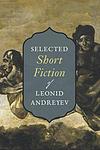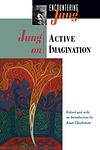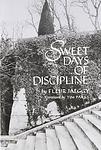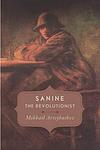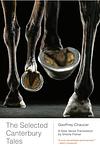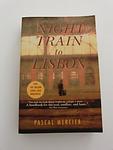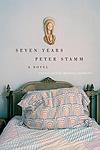The Greatest Russian, Swiss "Psychological, Fiction" Books Since 1900
Click to learn how this list is calculated.
This list represents a comprehensive and trusted collection of the greatest books. Developed through a specialized algorithm, it brings together 300 'best of' book lists to form a definitive guide to the world's most acclaimed books. For those interested in how these books are chosen, additional details can be found on the rankings page.
Genres
The Psychological genre of books typically explores the inner workings of the human mind and emotions, often delving into complex and sometimes disturbing psychological states. These books may focus on mental illness, trauma, relationships, or personal growth, and often challenge readers to confront their own beliefs and perceptions. Psychological books may be suspenseful, thought-provoking, and emotionally intense, offering readers a deep and often unsettling glimpse into the human psyche.
Countries
Date Range
Reading Statistics
Click the button below to see how many of these books you've read!
Download
If you're interested in downloading this list as a CSV file for use in a spreadsheet application, you can easily do so by clicking the button below. Please note that to ensure a manageable file size and faster download, the CSV will include details for only the first 500 books.
Download-
1. I'm Not Stiller by Max Frisch
The book is a profound exploration of identity and the human condition, revolving around a man who is arrested upon his return to his home country, Switzerland, after spending time in America. Although he insists he is not the man, Stiller, that everyone believes him to be, his protests are ignored. The story unfolds as he writes in his prison cell, reflecting on his past life and relationships, and grappling with the question of who he truly is. It's a thought-provoking narrative that challenges conventional notions of selfhood and personal identity.
-
2. Jakob Von Gunten by Robert Walser
This novel is a first-person account of a young man who leaves his privileged life to enroll at a school for servants in Berlin. The protagonist's observations and experiences in the school, his interactions with the headmaster and other students, and his internal struggles and reflections form the crux of the story. The narrative, imbued with irony and dark humor, explores themes of power, submission, individuality, and the absurdity of societal norms and expectations.
-
3. Petersburg by Andrei Bely
"Petersburg" is a symbolist novel set in the heart of Russia during the 1905 Revolution. It follows the story of a young man who is given the task of assassinating his own father, a high-ranking government official, by a radical political group. The narrative is a complex mix of politics, family drama, and philosophical introspection, all set against the backdrop of a city in turmoil. The novel is renowned for its vivid and poetic descriptions of the city itself, making Petersburg as much a character in the story as the people who inhabit it.
-
4. Homo Faber by Max Frisch
"Homo Faber" is a novel about a man named Walter Faber, a highly rational and logical Swiss engineer who believes strongly in technology and progress. His life is turned upside down when he survives a plane crash in the Mexican desert, falls in love with a young woman who turns out to be his daughter, and then loses her to a tragic death. This series of events forces him to question his faith in technology and confront the irrationality of life.
-
5. The Real Life of Sebastian Knight by Vladimir Nabokov
"The Real Life of Sebastian Knight" is a novel centered around the protagonist's quest to understand and write a biography about his deceased half-brother, a famous author. However, as he delves deeper into his brother's life, he encounters numerous obstacles and confusions, including misleading information, false leads, and the challenge of distinguishing between the man and his literary persona. Ultimately, the protagonist's journey becomes a profound exploration of identity, truth, and the blurred line between fiction and reality.
-
6. Moravagine by Blaise Cendrars
The novel follows the adventures of an eccentric, violent, and mentally unstable protagonist who is released from an asylum by his psychiatrist. The pair embark on a chaotic journey across Europe and America, encountering a variety of strange and often dangerous situations. The narrative explores themes of insanity, violence, and the human condition, offering a dark and surreal critique of modern society.
-
7. The Clay Machine-gun by Victor Pelevin
"The Clay Machine-gun" is a surreal and complex novel that explores the nature of reality and illusion. The story is set in post-Soviet Russia and follows a protagonist who has multiple identities, including a poet in 19th-century Russia, a 20th-century psychiatric patient, and a 21st-century advertising executive. The narrative moves between these identities and realities, blurring the lines between them and creating a layered and philosophical exploration of Russian society, identity, and the human psyche.
-
8. Little Devil by Fedor Sologub
"Little Devil" is a dark and symbolic tale set in pre-revolutionary Russia, exploring the themes of evil and corruption through the eyes of a young boy. The protagonist, an outcast in his rural village, is both tormented and fascinated by the malevolent forces he perceives around him. As he delves deeper into his own imagination and the sinister aspects of human nature, the line between reality and fantasy blurs, leading to a series of tragic events. The novel delves into the psychological and moral decay of its characters, reflecting the broader societal decay of the time.
-
9. The Luzhin Defense by Vladimir Nabokov
The novel centers around a Russian chess prodigy whose life becomes consumed by the game of chess. As he rises to international fame, his obsession with chess leads to a detachment from reality and a decline in his personal life. The protagonist's intense focus on chess strategies begins to invade his perception of the world, blurring the boundaries between the game and his own existence. This culminates in a psychological crisis during a critical championship match, where the line between his mental breakdown and a sophisticated defense strategy becomes indistinguishable, reflecting the protagonist's struggle to maintain his sanity amidst the all-consuming nature of his passion.
-
10. Child 44 by Tom Rob Smith
In a 1950s Soviet Union gripped by fear and paranoia, Leo Demidov, a dedicated officer of the state security agency, is faced with a chilling reality: a series of brutal child murders that the government refuses to acknowledge. As Leo defies his superiors and embarks on a dangerous investigation, he becomes entangled in a web of political intrigue and personal danger, risking everything to uncover the truth and protect those he loves. "Child 44" is a gripping thriller that explores the dark underbelly of a repressive regime and the resilience of one man determined to bring justice to a society plagued by secrets.
-
11. Creatures that Once Were Men by Maxim Gorky
"Creatures that Once Were Men" is a collection of short stories that depict the harsh realities of life in the lower classes of Russian society. The stories are set in a night refuge for the homeless, where the characters, despite their grim circumstances, strive to maintain their humanity. Through their struggles, the author explores themes of poverty, addiction, despair, and the human spirit's resilience.
-
12. The Seven Who Were Hanged by Leonid Andreyev
This book is a poignant exploration of the human condition through the lens of seven individuals condemned to death. As the narrative unfolds, it delves into the innermost thoughts and emotions of these characters, each facing their imminent execution for various crimes, ranging from political offenses to personal transgressions. The story is a profound meditation on life, death, and the arbitrary nature of fate, revealing how the prospect of the gallows brings out the most intimate fears, regrets, and reflections in those awaiting their final moments. Through its vivid character studies, the work presents a stark commentary on the justice system and the moral complexities of capital punishment.
-
13. The Time: Night by Ludmila Petrushevskaya
The book is a stark portrayal of the struggles faced by a multi-generational family living in the cramped quarters of a Moscow apartment during the twilight years of the Soviet Union. The narrative is driven by the matriarch, a poet who is both resilient and weary, as she navigates the complexities of caring for her mentally unstable daughter and her neglected grandson. The story delves deep into themes of maternal sacrifice, poverty, and the relentless passage of time, painting a grim picture of domestic life and the burdens of womanhood in a society that is as unforgiving as it is oppressive.
-
14. Two Essays on Analytical Psychology by Carl Jung
This book contains two comprehensive essays that delve into the depths of analytical psychology. The first essay explores the role of the unconscious in the human psyche, discussing its influence on dreams, mythology, and mental illnesses. The second essay delves into the process of individuation, which is the psychological process of integrating the conscious and unconscious parts of the mind to achieve self-actualization. This work is a foundational text in understanding the theories and concepts of analytical psychology.
-
15. Sweet Days of Discipline by Fleur Jaeggy
The novel is a haunting tale of a young girl's experiences at a Swiss boarding school in the post-World War II era. The protagonist becomes infatuated with a fellow student, leading to an exploration of intense emotions, obsession, and the harsh realities of discipline and conformity within the rigid structure of the school. The narrative is characterized by its stark, minimalist prose and its exploration of themes such as loneliness, desire, and the loss of innocence.
-
16. Sanin by Mikhail Artsybashev
This novel is a controversial work that delves into the life and philosophies of its protagonist, a young man who embodies the principles of free love and rejects the conventional moral values of society. Set in the Russian Empire at the turn of the 20th century, the narrative explores themes of individualism, hedonism, and the pursuit of personal happiness above societal norms. The protagonist's radical views and actions challenge the traditional moral fabric and provoke reflection on the nature of freedom, love, and the constraints imposed by society. The book sparked significant debate upon its release due to its candid portrayal of sexuality and its critique of established social mores.
-
17. Selected Tales by Leonid Andreyev
"Selected Tales" is a compilation of short stories that delve into the depths of human emotion and existential despair. The collection showcases the author's fascination with the darker aspects of the human psyche, exploring themes such as death, madness, and the search for meaning in a seemingly indifferent universe. Through a blend of realism and symbolism, the stories present a poignant commentary on the human condition, often highlighting the tragic ironies and complexities of life. The author's vivid prose and ability to evoke intense atmospheres make this anthology a profound reflection on the struggles of the soul and the moral dilemmas faced by individuals in times of crisis.
-
18. Night Train To Lisbon by Pascal Mercier
The book revolves around a Swiss classics teacher who, upon encountering a mysterious book by a Portuguese author, becomes obsessed with the life and thoughts of the writer. This obsession leads him to abandon his job and life in Bern, embarking on an impulsive journey to Lisbon. In his quest to understand the author's fate and the resistance movement against the Portuguese dictatorship that the author was involved in, the protagonist explores themes of history, philosophy, and the complexities of human character. As he delves deeper into the past, he encounters various individuals who were connected to the author, piecing together a narrative that challenges his own understanding of life and identity.
-
19. Seven Years by Peter Stamm
"Seven Years" is a novel about a complex love triangle. The protagonist is a man who's married to a woman he doesn't love, while he's obsessed with another woman who he doesn't understand. The novel explores the themes of love, desire, and the passage of time, as it jumps back and forth between different periods in the protagonist's life. Over the course of seven years, the protagonist grapples with his feelings and the consequences of his actions, leading to a series of dramatic and emotional revelations.
-
20. Montauk by Max Frisch
"Montauk" is a poignant and introspective novel that explores the complexities of love, memory, and the passage of time. Through the lens of a middle-aged writer reflecting on his past romantic encounters, the book delves into themes of longing, regret, and the elusive nature of happiness. With lyrical prose and a deeply personal narrative, the story offers a profound meditation on the human condition and the fleeting nature of relationships.
Reading Statistics
Click the button below to see how many of these books you've read!
Download
If you're interested in downloading this list as a CSV file for use in a spreadsheet application, you can easily do so by clicking the button below. Please note that to ensure a manageable file size and faster download, the CSV will include details for only the first 500 books.
Download









